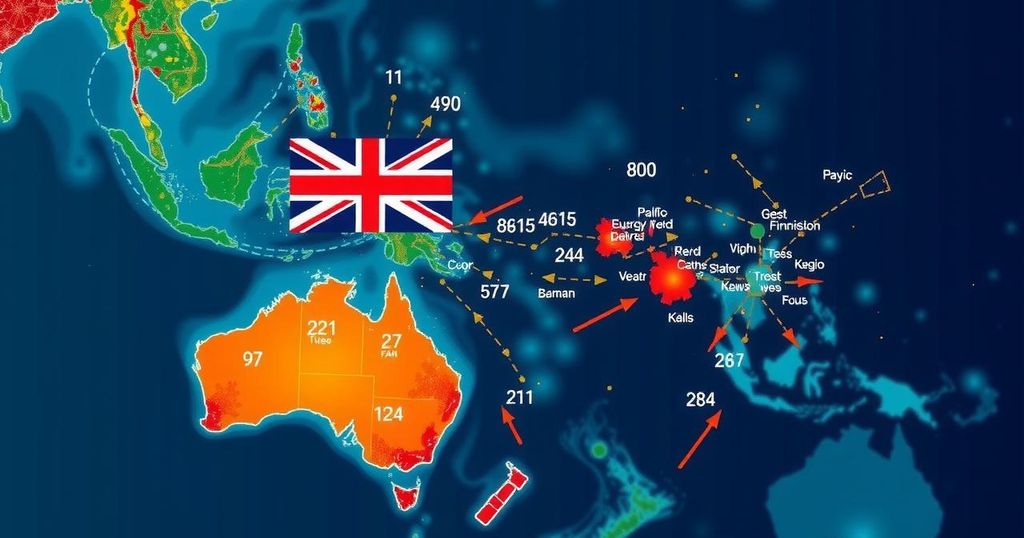Australia is at a crossroads, choosing to side with fossil fuel exports over climate accountability in ongoing legal proceedings at the International Court of Justice initiated by Pacific nations seeking clarity on national obligations regarding climate change. This decision reflects broader struggles in balancing energy exports with environmental concerns, risking strained relations with Pacific neighbors as the court’s opinion looms.
Australia finds itself at a critical juncture as it endeavors to balance its role as a dependable partner to Pacific nations while maintaining its position as a leading fossil fuel exporter. The adverse effects of climate change loom large, compelling Pacific nations to take decisive legal action. This week witnessed Australia favoring its fossil fuel interests during a public court session at the International Court of Justice, aligning itself with major emitters like the United States and China in legal matters concerning climate obligations.
The pivotal case emerges from a five-year legal journey initiated by students from the University of the South Pacific, whose aim was to seek accountability for climate justice. Vanuatu, along with other Pacific nations, has brought forth significant questions to the International Court of Justice regarding state responsibilities under international law to protect the climate from greenhouse gas emissions, potentially establishing a new legal standard.
Despite the proactive stance taken by Pacific nations, Australia’s government intends to expand its fossil fuel export activities, which raises red flags regarding its commitment to combating climate change. The forthcoming advisory opinion from the court, expected next year, could dramatically affect international legal precedents and Australia’s fossil fuel policies.
Australia’s representatives, while superficially supportive of Pacific leadership, contended in court that obligations to mitigate climate change should narrowly apply within the framework of the Paris Agreement, arguing against broader accountability for greenhouse gas emissions. This legal position suggests that Australia seeks to minimize its liability as it continues expanding fossil fuel projects, thus heightening tension with Pacific neighbors.
As the case progresses, the potential for significant changes to Australia’s approach toward climate diplomacy increases. Australia’s decision to host COP31 in 2026 may offer an opportunity to realign its interests with those of Pacific nations, marking a critical step in confronting climate issues. The forthcoming court rulings, alongside Australia’s evolving policies, could foster either cooperation or conflict within the region, significantly impacting Australia’s international standing and relationships with its Pacific partners.
Australia’s dual role as a supporter of Pacific nations and a major fossil fuel exporter presents a complex challenge. Pacific nations view climate change as an existential threat, prompting them to advocate for accountability and legal redress through international mechanisms. In this context, Vanuatu and other nations have pursued a significant case at the International Court of Justice, seeking to establish legal obligations for countries concerning climate protection. This evolving legal landscape carries implications for Australia’s energy policies and international relationships, particularly with its Pacific neighbors, as it navigates the delicate balance between economic interests and environmental responsibilities.
In summary, Australia’s recent decision to prioritize its fossil fuel exports over climate responsibilities presents a significant diplomatic challenge. The upcoming advisory opinion from the International Court of Justice could redefine international obligations regarding climate actions, particularly impacting Australia’s policies and its relationships with Pacific nations. The outcomes of this legal battle, along with Australia’s potential for leadership in green exports, will be crucial in determining the future of its partnership with the Pacific region amidst pressing climate issues.
Original Source: theconversation.com






